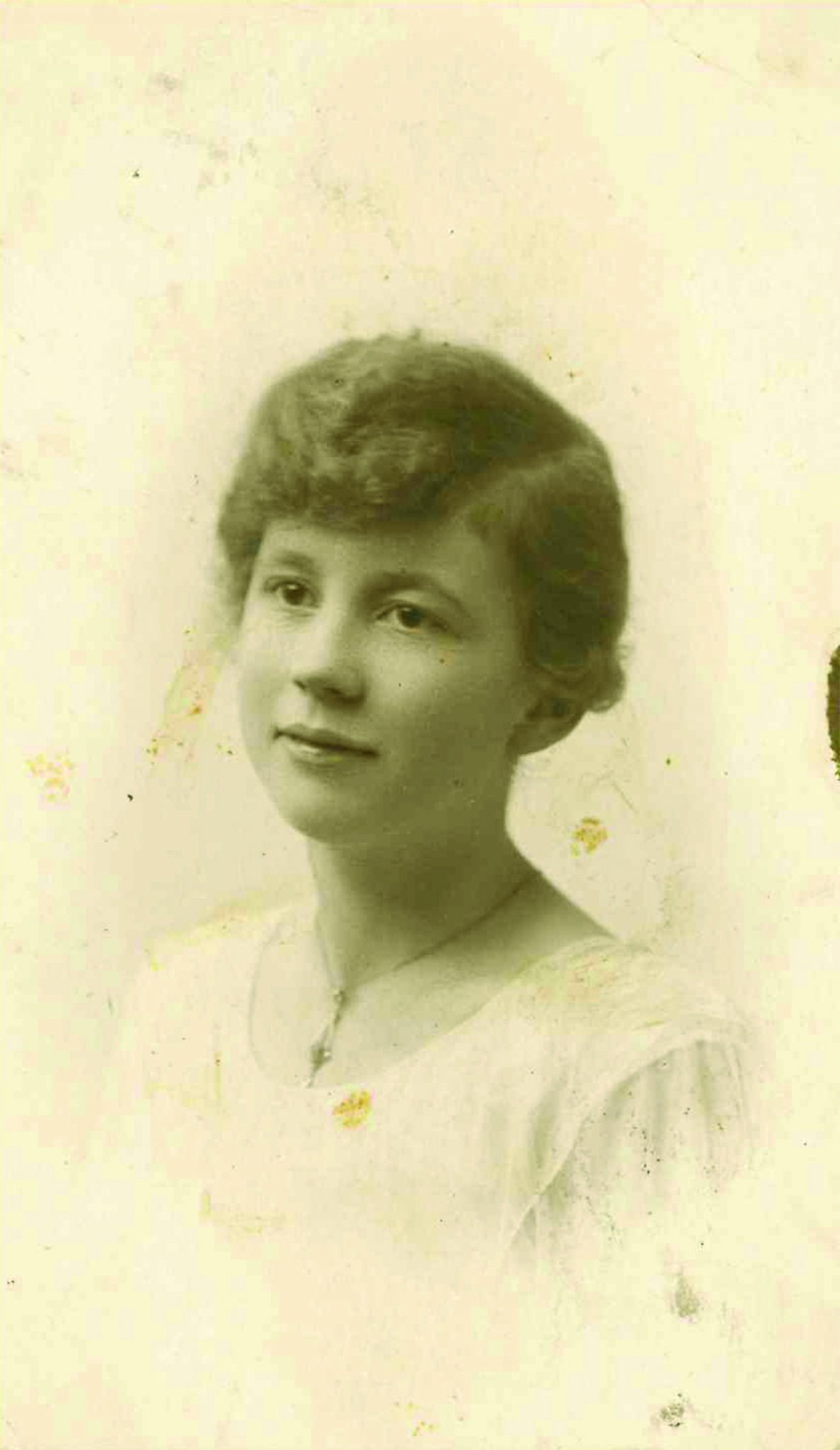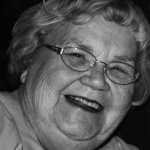
Betty’s mother, Crystal (Sletmoen) LIndstrom
by Betty Mills | Submitted Photo
My mother was orphaned at the age of 12 when both of her parents died within two months of each other of tuberculosis—the killer disease of two generations ago. She didn’t talk about it much, but I remember her description of her mother’s funeral when the minister proclaimed that the devil lurked for orphan children, so it was up to the parishioners to protect these children from the evil one.
As a result, people frequently hauled out garish and frightening pictures of hell to show my mother her potential fate if she was not a good girl.
Perhaps that is why she altered the childhood prayer I said each night at bedtime—that old familiar, “Now I lay me down to sleep, I pray the Lord my soul to keep…” But instead of saying next, “If I should die before I wake, I pray the Lord my soul to take,” we prayed, “His love stay with me all the night and wake me in the morning bright.”
She also believed that nobody, especially school children, should start their day without a hot breakfast. I thought of her when a friend who taught kindergarten in one of Bismarck’s poorer neighborhoods kept meal tickets in her desk for the children who arrived without breakfast or the possibility of lunch.
There were rules at our house—many of which I think originated in mother’s sudden descent into a poverty stricken, homeless life until she became a school teacher and eventually married my father. We arrived at meals on time, made our beds before we launched into any other activities, hung up all clothes, took off overshoes in the back hall, and did our chores without complaint.
We took for granted the always-filled cookie jar, the frosted cinnamon rolls every Thursday, the special food for Sundays and holidays; a clean house, clean clothes, clean language, and a bedtime story every night until we got old enough to read our own.
She made my clothes, patched my overalls, taught me to weed and love the flowers she planted everywhere, to identify the birds, which nested in our trees, and sent me off to college with a wardrobe which did not betray my farm girl origins. Only late in her life did she tell me that she had one dress when she was in high school, which she washed every night and ironed in the morning to wear to school.
There is of course, a long list of questions I should have asked my mother, and it’s too late now. Over the years I met most of the aunts and uncles on whose davenports I think she slept during her homeless years, but she never talked about her father, an immigrant from Norway and a rural mail carrier at the time of his death. What was he like? Who paid for her to take the normal school course in East Grand Forks her senior year in high school, which qualified her to teach in rural grade schools? Where did she stay, and how did she get there?
I have occasionally complained that growing up on a ranch near a small western North Dakota town in the Dirty Thirties meant there was a lot missing in my life—a library, cultural events, trips to a big city, and exposure to a world I might someday wish to join. But I would not trade it for my lucky childhood with a loving, thoughtful, interesting mother who wrote poetry when she could spare a moment.
And I think of her when I read of the homeless children in Bismarck. On whose davenport can they sleep? How do they get the education they need? If they wanted to iron their one outfit, where would they plug in the iron?
Where is their hot breakfast?
 Betty Mills graduated with honors from Mary College in 1967 with a degree in social work. Her career has included motherhood and leadership; Betty served on many local boards and councils.
Betty Mills graduated with honors from Mary College in 1967 with a degree in social work. Her career has included motherhood and leadership; Betty served on many local boards and councils.
